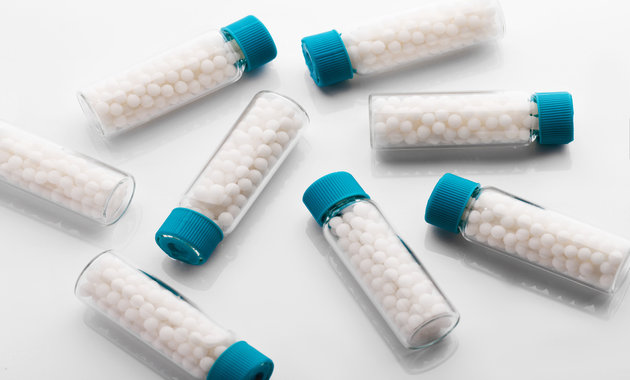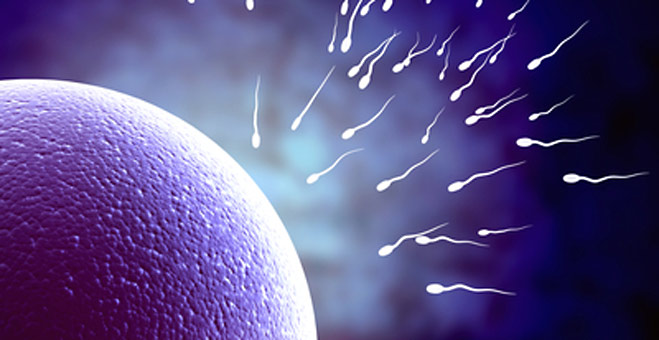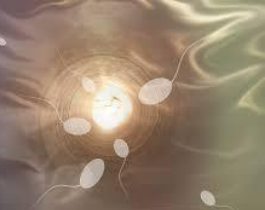Homeopathy has a significant clinical history, and its popularity has increased in the last 30 years in people seeking alternative treatment. One of the most common areas of homeopathic application is infertility.
Infertility
It is the inability to conceive despite regular unprotected sex for more than a year (6 months if a female is more than 35 years of age). Infertility is on the rise, and according to the WHO, 1 in every 4 couples in developing countries suffer from infertility. It can be present in either of the partner and in around 20% of the cases both the partners suffer from the condition.
Being diagnosed as infertile puts one under tremendous emotional and psychological pressure. Add a social burden to this. However, the most important concern for every couple is to choose the right treatment method. If you are one of them, homeopathic medicines can be of great aid, as they have an advantage over conventional treatment methods.
What is Homeopathy?
Homeopathy is recognized as the second largest therapeutic system according to the WHO. Homeopathy is derived from Greek words “similar suffering” and is based on the tenets “like cures like”. It is a holistic treatment option where the body, spirit, and mind are taken into consideration. Homeopathy is based on the principle of individualization where medicine for a case is selected as per specific symptoms and level of health of the patient.
Homeopathy has the following advantages when treating infertility:
●Homeopathic medicines are safe, without any side-effects.
●Treatment is individualized and not only based on the disorder.
●Medicines are toxin-free as they are drawn from natural substances.
●These medicines use the body’s own immune system to counter the problem and hence are non-intrusive.
How homeopathy helps in treating infertility?
Homeopathy works on the same principle as other pathies and rectifies the underlying cause of infertility. It goes to the root of the problem rather than treating the symptom, e.g., infertility due to hormonal imbalance will benefit from medicines that rectify the imbalance. It treats infertility as an imbalance in the body’s harmony to be corrected and not merely as a disease. Apart from treating the problem, homeopathic medicine stimulates and supports the natural process of conception.
Homeopathy can help in cases of both female and male infertility. Let’s take into consideration both the aspects one by one.
FEMALE INFERTILITY

A successful pregnancy occurs in the following steps:
●A mature egg is released by one of the two ovaries.
●It is picked up by the fallopian tube.
●Sperms swim through the uterus to reach the egg through the fallopian tube for fertilization.
●The fertilized egg travels to the uterus.
●It gets implanted in the uterus.
Some of the common investigations that are done to identify the exact cause of infertility:
●Hysterosalpingography
●Ovarian reserve testing
●Hormonal tests for thyroid and pituitary
●Pelvic ultrasound
●Ovulation testing
●Laparoscopy to identify scaring, endometriosis, abnormalities of fallopian tubes, etc.
●Hysteroscopy
●Genetic testing
There are various factors that can disrupt the normal reproductive process. Some of the common causes are as mentioned below:
1. Ovulation disorder: Accountable for 1 in 4 cases of infertility
●PCOS: It is a hormonal disorder that results in a small cyst in the ovaries or enlarged ovaries.
●Premature Ovarian failure: This involves loss of function of the ovaries before the age of 40 years.
●Hypothalamic dysfunction: Excess production of the hormone prolactin which results in lower estrogen levels and hence infertility.
2. Tubal infertility
Blocked or damaged fallopian tube block the passage of the fertilized egg into the uterus or prevents the sperm from traveling towards the egg.
●Previous surgeries: Certain abdominal surgeries like surgery for ectopic pregnancy (pregnancy occurring outside the uterus, commonly in the fallopian tube).
●Pelvic inflammatory disease: A common infection of the fallopian tube and uterus caused by gonorrhea, chlamydia, or other sexually transmitted infections.
●Pelvic Tuberculosis: This infection is one of the commonest reason for tubal infertility.
3. Cervical or uterine cause
●Benign growth or tumors: Any abnormal growths
●Uterine abnormalities: An abnormally shaped uterus since birth can affect implantation.
●Cervical stenosis: Narrowing of the cervical canal due to damage to the cervix or an inherited malformation.
4. Endometriosis
●Tissue that normally lines the uterus is implanted and grows in various other locations.
●This growth of tissue or its surgical removal can cause scarring, which can block the fallopian tube and prevent fertilization of the egg by the sperm.
5. Unexplained infertility
●In certain cases, no specific cause can be ascertained for infertility, and it can be a combination of minor factors in both the couples.
How can homeopathy help?

Homeopathic treatment involves the use of constitutional homeopathic medicines that are most suitable for the particular patient and is ascertained after a detailed case analysis. The mental and physical make-up of the patient along with the underlying cause and symptoms of sexual sphere aids in the selection of medicine.
Homeopathic medicines work in the following way:
●Aids in the regulation of menstrual cycle, balancing the body’s hormone and improving the process of ovulation.
●Very helpful for emotional disturbances and blockages that can affect fertility.
●Helps in managing/lowering stress, depression, and anxiety in females who are trying to conceive.
Some of the commonly used homeopathic remedies are as follows:
1. Medicines for infertility due to acrid vaginal discharge: Borax and Natrum Phos help in cases of infertility due to acrid vaginal discharge that destructs and kills sperms.
●Borax: Helps in cases where the vaginal discharge is acrid, warm, and like the white of an egg.
●Natrum Phos: It is helpful in cases where the vaginal discharge is honey-colored, acrid, and offensive.
2. Medicines for infertility due to heavy and prolonged menses:
●Alteris Farinosa: Aids in conceiving when periods are early, too profuse, and too long-lasting.
●Calcarea Carb: Useful in cases where menses are copious and early. Other common symptoms include fatigue, tiredness, and yellowish/whitish vaginal discharge. It is also indicated in cases of repeated abortions.
3. Infertility in females with lower sexual desire:
●Sepia: It is indicated in females with a low sex drive, dryness of the vagina, and dyspareunia (pain during intercourse). Sepia is prescribed when there is a bearing down sensation, which is a sensation of heaviness in the pelvic region due to the weakening of the pelvic floor muscles.
●Agnus Castus: It is indicated in cases with an aversion to sex, transparent vaginal discharges, and relaxed genitals. It is helpful in cases where aversion to sex is due to excessive masturbation.
4. Infertility in females with non-retention of sperms:
●Natrum Carb: It is the most indicated remedy in cases of non-retention of sperms due to vaginal discharges that are irritating and offensive.
5. Infertility due to scanty and short menses:
●Pulsatilla: It is indicated in females with an abnormal menstrual cycle since menarche (occurrence of the first menstrual cycle). Menses are late, scanty, and last for a short period of time. It is also indicated in females with PCOS.
●Sepia: Can be prescribed in females with scanty, short, and suppressed menses. As discussed above, bearing down sensation is a common association.
*Always consult a homeopathic practitioner before starting any medicines for infertility.
MALE INFERTILITY

Male requirements for a successful pregnancy:
●Production of healthy sperms. Normal functioning of at least one of the testicle, adequate production of testosterone and other hormones that maintain and trigger sperm production.
●Sperm produced in the testicles are transported through delicate tubes, mixed with semen, and ejaculated out of the penis.
●Sperm count is considered as low if it is less than 15 million sperm/ml of semen or fewer than 39 million/ejaculate.
●Abnormal motility of the sperms can also cause infertility.
Some of the common investigations that are done to identify the exact cause of infertility:
●Semen analysis
●Hormonal testing
●Post-ejaculation analysis
●Testicular biopsy
●Scrotal ultrasound
●Transrectal ultrasound
There are various factors that can disrupt the normal reproductive process. Some of the common causes are as follows:
1. Blockage of sperm transport
Medical cause:
●Infection (Orchitis, Epididymitis, Other sexually transmitted infection like HIV or gonorrhea)
●Varicocele (Swelling of veins draining the testes)
●Absence of vas deferens
●Vasectomy(Male sterlization method)
●Prostate-related problem
2. Low sperm production

Medical cause:
●Infections
●Torsion (Twisting of the testes)
●Genetic causes like Klinefelter’s syndrome
●Undescended testes
●Medications like testosterone replacement therapy
Environmental cause:
●Radiation damage
●Chemicals like pesticides, herbicides, xylene.
●Hyperthermia (frequent use of sauna or hot tub)
Lifestyle and other causes:
●Use of anabolic steroids
●Use of cocaine or marijuana
●Alcohol use
●Tobacco smoking
●Emotional stress
●Obesity
3. Hormonal problems
Medical cause:
●Congenital lack of FSH/LH
●Pituitary tumors
●Use of anabolic androgenic steroids
Lifestyle and other causes
●Obesity
4. Sexual problems
Medical cause:
●Failure of ejaculation
●Erectile dysfunction
●Retrograde ejaculation (entering of semen in the bladder instead of the penis)
●Premature ejaculation
●Prostate surgery
●Damage to nerves
Lifestyle and other causes
●Alcohol use
●Emotional stress
5. Sperm antibodies
Medical cause:
●Injury or infection in the epididymis
●Vasectomy
How can homeopathy help?
●Homeopathic medicines are effective in improving sperm count as well as sperm volume, motility, and correcting abnormal sperm morphology.
●It is seen that homeopathy aids males in having healthier sperms and hence improving fertility.
●Homeopathic medicines also aid in the normal functioning of the endocrinal glands.
●It can treat varicocele and other urological disorders
●Homeopathic medicines aids spermatogenesis
●It can be beneficial in males with small testicles and those with the only single functional testicle.
Some of the commonly used homeopathic remedies are as follows:
1. Infertility in males with low sperm count or abnormal motility:
●X-Ray 30: It aids to increase sperm count. It helps in improving both, quantity and quality of sperms.
●Damiana Q: It is indicated in cases of low sperm count, where sperms are almost absent in the semen. It also helps those with erectile dysfunction.
●Nux Vomica: It is indicated in cases of low sperm count due to bad effects of tobacco, coffee, or alcoholic stimulants. It is also helpful in cases with mental over-exertion, lack of sleep, sedentary lifestyle.
●Phosphoric acid: it is indicated in cases of abnormal sperm motility.
2. Infertility in males with erectile dysfunction:
●Agnus Castus: It is indicated in males with lack of sexual desire as well as physical inability. In patients having cold, flaccid, and relaxed genitals.
●Caladium: It is indicated in cases of impotency with depression. Despite sexual desire, there is an inability to perform due to relaxed genitals and weak erection.
●Selenium: It is indicated in cases with weak, slow, and rapid erections. It is helpful for involuntary semen discharges.
●Argentum Nitricum: It is indicated in cases where there is an inability to maintain an erection during sexual intercourse.
●Lycopodium: It is indicated in cases of the relaxed, cold, and small penis due to overindulgence in masturbation at a young age.
●Cobaltum: It is indicated in cases where semen is ejaculated without an erection. It is associated with weak legs and lumbar backache. Brown spots on the abdomen and genitals are observed.
●Titanium: It is indicated in cases with too early ejaculation.
●Tribulus Terrestris: It is indicated in middle-aged individuals (mid-40’s) where impotence is due to overindulgence.
3. Infertility in males with orchitis (Inflammation of the testicles):
●Conium: It is indicated in cases where the testicles are swollen, hard, and enlarged. Conium is commonly prescribed for suppressed sexual desire.
4. Infertility due to wasting of testes:
●Sabal Serrulata: It is indicated in cases with atrophy of the testes. It is also indicated in cases of prostatitis or prostate enlargement.
*Always consult a homeopathic practitioner before starting any medicines for infertility.
Instructions while taking homeopathic medicines:
●Homeopathic medicines should be taken at least half an hour before drinking and eating.
●As homeopathic medicines are diluted and sensitive to strong smelly food like garlic, onions, mint, and coffee, you should avoid consuming them during the course of medicine.
●Avoid storing or opening homeopathic pills in an environment with a strong scent such as the scent of essential oils, perfumes, etc.
●Homeopathic pills or pellets should be placed under the tongue to allow them to melt slowly, which aids maximal absorption.
In a nutshell, infertility is a disorder that refers to the biological inability of a woman or a man to conceive. If you are in search of an effective treatment option for infertility, you should consider homeopathic treatment. Homeopathy treats infertility naturally by rectifying the underlying cause without subjecting one to side-effects. Homeopathic treatment options are available for both men and women and are more beneficial when treatment is taken by both of them.
Recommended reads:
Can Substance Abuse Lead To Sexual Dysfunction In Men?
Suffering From Back Pain? Try Homeopathy
616 total views, 1 views today

